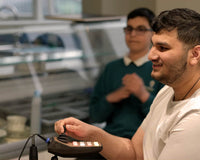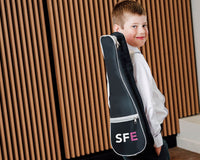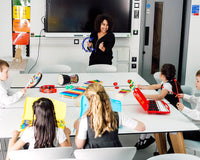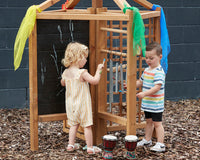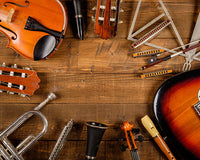They say learning
Piano is one of the easiest instruments to learn, but hardest to master. As someone who has played the piano for nearly 30 years, I'm still working on the "mastering" part.
I wholeheartedly believe piano can be learned at any age, and encourage those who feel "too old" that it's never too late to start. That being said, I also think learning at a young age (when done correctly) can benefit immensely.
It's been known for quite some time that a child's brain is more malleable than adults. Take learning a language, for example. The longer you wait to learn a foreign language, the harder it will be to be fluent and/or sound like a native speaker. It's not clear at what exact age is the cutoff, but the earlier you start, the quicker you will see results.

As I continue learning piano and have taught piano, I've noticed three main categorical benefits to starting young:
- Social Benefits
- Cognitive Benefits
- Physical Benefits
Social Benefits
When I started taking piano lessons at the age of 5, my piano teacher thought I had some sort of speech development problem (seriously)! When in reality, I was extremely shy. For the first year of taking lessons, I probably said only a handful of words.
I cannot convey how hard it was to speak to people I didn't know well. I think my teacher saw potential in me because she started signing me up for every recital and competition she could. Faced with anxiety, I did the only thing I knew that would help...
Practice!
As I learned to practice, I learned discipline, dedication, and time management. When the day finally came for my first recital, I was a nervous wreck.
I can't remember if I made any mistakes, but in the end, it didn't really matter if I did. Experiences like these, whether you play perfect or mess up in front of everyone, will help prepare you to deal with trials and adversity throughout the rest of your life.
Over the years, it’s been easier getting in front of people to play. Learning to manage my social anxiety was difficult, but I have to thank my piano teacher for pushing me out of my comfort zone.

Cognitive Benefits
It's no secret that music helps you learn mathematical, concentration, and analytical skills; Especially in young kids.
Young children most likely won't make the connection that they are developing these skills, but by continually practicing, they are learning hand-eye-coordination, counting beats and rhythms, and analyzing symbols which directly correlate with improving their cognitive skills.
Don't take my word for it, a study "found that taking music lessons in childhood was a significant predictor of a higher IQ in young adulthood and a history of better high school grades. For the younger children, the study found a positive association between music lessons and higher school grades and higher scores on achievement testing in mathematics, spelling and reading."

Physical Benefits
If you're familiar with Sergei Rachmaninoff, you'll know he had monstrous hands. His hands were so large he could span 12 piano keys from his pinky to his thumb.
Most of his work as a composer is intended for highly skilled pianists. This is partly due to the fact that many pianists don't have the reach required to play his music.
Children who learn the piano can begin to develop dexterity and strength in their hands. Without learning proper technique as a child, I would have had a lot more difficulty learning Rachmaninoff's music.

Are there any disadvantages to learning piano as a child?
There is only one reason I think a child should not learn piano. That reason is... if they don't want to do it. It’s as simple as that. Children who are forced into it begin to resent it.
A child that doesn't enjoy learning piano will do everything they can to not practice. This is frustrating both as a parent and teacher because no progress is being made. This will lead to them eventually quitting altogether.
Finding a teacher who is passionate about teaching and can make learning music fun is the key to preventing this. However, we should always respect the child's decision and not force them to take lessons if they don’t want to.

Is it too late to learn as an adult?
It's never too late to learn! One of my best students was in her 30s and she progressed faster than any of my other students.
It takes longer to master technique, but if you're an adult and have a desire to learn, it's very possible to do quite well.
Additionally, as adults it's easy to get anxiety from work and other stresses of life, but there is nothing quite like sitting at the piano and playing until the stress is gone.

Conclusion
Learning piano as a young child has many benefits. It develops all sorts of skills and talents that can benefit them for the rest of their life.
If you are considering enrolling your child in lessons, help motivate them, let them teach you what they're learning, and be involved. When they get older, they will thank you for being there for them.
Want to read more from Max? Take a look at more of his work
Here!
 As I continue learning piano and have taught piano, I've noticed three main categorical benefits to starting young:
As I continue learning piano and have taught piano, I've noticed three main categorical benefits to starting young:









